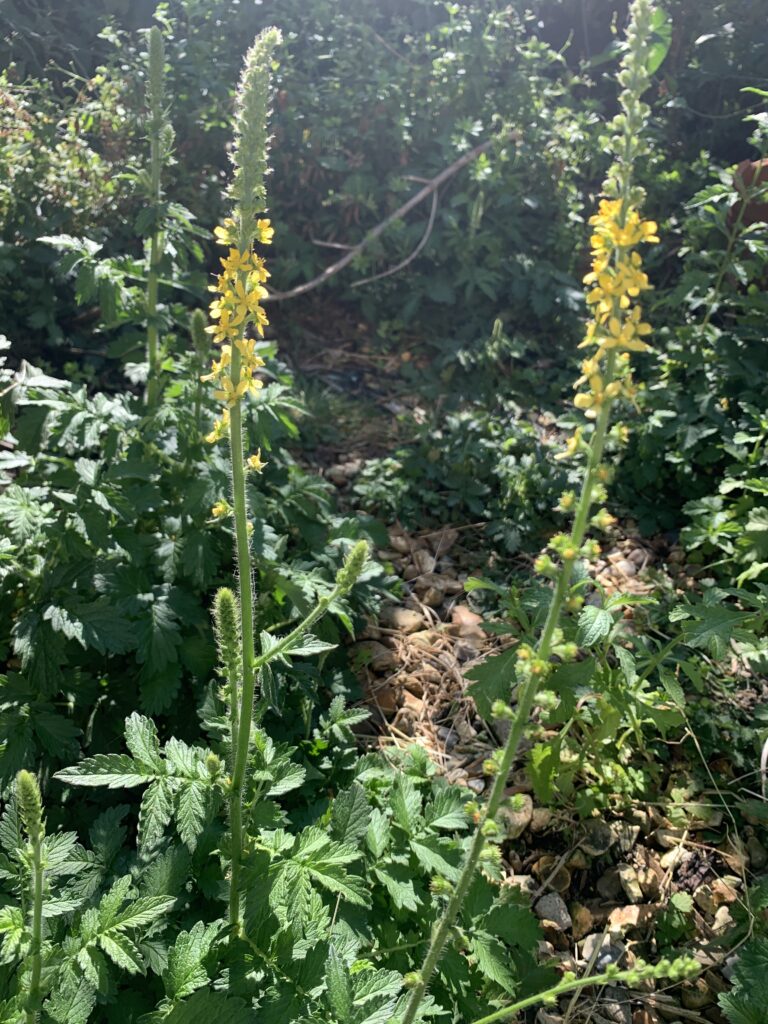Agrimony and digestive upsets
Agrimony (Agrimonia eupatoria) is thriving at the moment, in meadows, and along grassy verges. Its flowers and leaves have been used by herbalists for generations to address many problems, including helping wound healing, digestive and urinary tract problems, and as a gargle for sore throats and gums.
As a member of the rose family, agrimony is rich in tannins, also coumarins, flavonoids, a volatile oil, and polysaccharides. Its combination of constituents make it astringent and mildly bitter, hence perfect as a gentle tonic for the digestive system, particularly where there is a tendency to diarrhoea.
In practice, herbalists will take a full case history in order to gain more information regarding underlying causes, as well as to note any medications currently being taken, and past medical history. This information will then allow the combination of agrimony with other relevant and appropriate herbs, which are tailored to the individual.

If you’d like to read some more recent research being conducted on the many and varied uses of agrimony, you can find some studies here: The Therapeutic Effects of Agrimonia eupatoria L. (from the department of pharmacology, Charles University, Czech Republic, 2020) https://www.ncbi.nlm.nih.gov/pmc/articles/PMC8603700/pdf/pr69_s555.pdf



